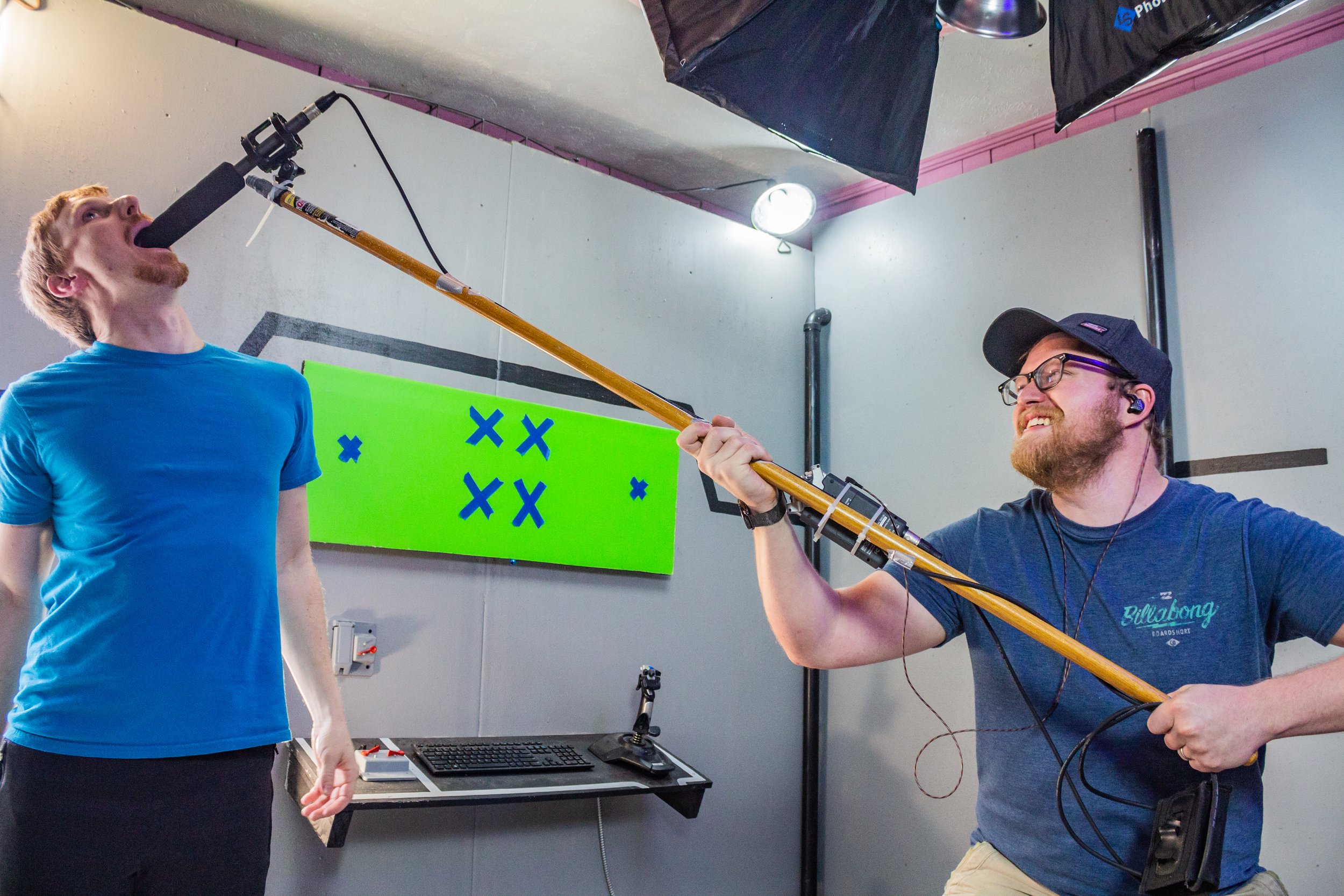Lesson Learned: “Adrift” (Con’t)
"We are our own worst critic."
I have heard that phrase repeatedly, and I usually assume it as an excuse to simply settle for what's been made and not strive to do better. However, that's not always the case, and I will use "Adrift" one more time as a prime example. In the previous blog post, I not only tore the film to shreds, but exposed my own shortcomings as director of that film. I have come to realize that yes, I am my own worst critic, too absorbed in the minute details to see the broad scope of what happened: a near miss at a good, solid film.
So how was this so close? Let's take a look.
Lesson One
No matter what comes, have fun.
One thing anyone can tend to forget are the positives that took place during a particularly difficult time. Throughout the production of Adrift, the spirit was light, the cast and crew was on point, and everything seemed to be functioning as expected, with a few hiccups. While I can tear into the production all day, as I look through the archive footage of the production of Adrift, one thing rings true: we had fun. And isn't that the point of it all? Whether or not the production turned out the way I had hoped, we enjoyed being on a film set, working with the characters in this universe, and most importantly, we enjoyed collaborating with each other. There were hardly any moments of tension between our cast and crew, which I count a considerable blessing, given the tight workspace we all were in. The set was built in a spare room in my house, a converted garage, and the set itself took up nearly 75% of the free space in the room leaving barely any room for crew. We were constantly in each other's way, falling over set extensions, and generally just squished. There wasn't enough sitting room for everyone, so most of us had to stand, myself included. Usually, when that happens, tensions run high. But they didn't on our set, and I think that's mainly due to our persistence to keep the production light, in spite of the heaviness of the script itself. We genuinely all enjoyed being there and working on this film, and that has to count for something.
Lesson Two
When life gives you lemons...
The evolution that was Adrift was a long and arduous one, one that continued to evolve straight through post-production. The initial idea for the script changed drastically throughout production. I can blame shortcomings of myself for days, but in the end, some portions of the script just didn't play practically, especially on our budget. There were some portions of dialogue that sounded great in my head, but when rehearsed, just always felt forced and unnatural. That's the way things work, and when our script soured, I had to work on the fly to change things to hold the story together. So much changed during production that I wish I could detail it for you, but one example is the character of Grant. Initially, he was a pretty chill guy that was very forgiving, almost passive. While we were rehearsing and even filming, it became clear that in order to be in direct opposition to Robert, he couldn't be as passive as the script made him out to be. It simply didn't allow for an organic arousal of anger from Robert. So lines were then altered to make Grant an angrier character, directly attacking Robert constantly. Had the original lines been kept, I wonder if the tone would have been way off base for what I was wanting, or if the film would have even remotely worked at all. In the end, I stand by the decisions I made, as they were always made in the interest of the story as a whole and not just getting the character to say a line I really enjoyed writing. It's a tough thing, to be sure, but you have to be willing to let go of a few things in order to keep the story moving in a way that's natural.
Lesson Two
When life gives you lemons...
The evolution that was Adrift was a long and arduous one, one that continued to evolve straight through post-production. The initial idea for the script changed drastically throughout production. I can blame shortcomings of myself for days, but in the end, some portions of the script just didn't play practically, especially on our budget. There were some portions of dialogue that sounded great in my head, but when rehearsed, just always felt forced and unnatural. That's the way things work, and when our script soured, I had to work on the fly to change things to hold the story together. So much changed during production that I wish I could detail it for you, but one example is the character of Grant. Initially, he was a pretty chill guy that was very forgiving, almost passive. While we were rehearsing and even filming, it became clear that in order to be in direct opposition to Robert, he couldn't be as passive as the script made him out to be. It simply didn't allow for an organic arousal of anger from Robert. So lines were then altered to make Grant an angrier character, directly attacking Robert constantly. Had the original lines been kept, I wonder if the tone would have been way off base for what I was wanting, or if the film would have even remotely worked at all. In the end, I stand by the decisions I made, as they were always made in the interest of the story as a whole and not just getting the character to say a line I really enjoyed writing. It's a tough thing, to be sure, but you have to be willing to let go of a few things in order to keep the story moving in a way that's natural.
Final Thoughts
While the film did not look the way I wanted it to, the original message is still there. While I can chide myself day and night over the mistakes of the film, I believe that everything that needed to be in the film is still there. So many things changed and so much of the film evolved, but it's important to not only focus on what went wrong, but what went right. If we can't learn from the failures while focusing on the positives, we will forever look down on ourselves. But if, for one moment, we can shed light on the good things that happened, it's then that hope emerges. So while the film that was Adrift may live on in infamy, in my head at least, I know that the lessons we as a team learned throughout this production have been invaluable, and we are all the better for it.




